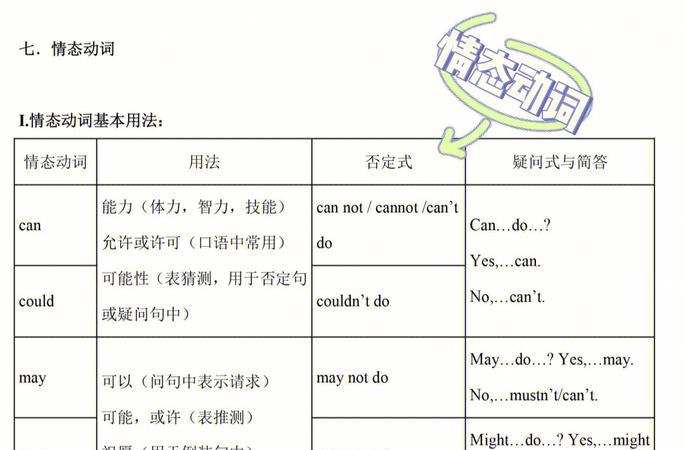情态动词是英语中的特殊动词,表示态度或推测。"can"和"could"表示能力和可能性,"may"和"might"表示可能性的程度,"must"表示必要性和推测,"shall"和"should"表示建议和义务,"will"和"would"表示意愿和推测。这些动词在语境中的使用有所不同,对英语学习者来说,理解这些差异是很重要的。

can 和 could
can 和 could 都表示能力和可能性,但是 can 更强调当前的能力,could 则更偏向于过去的能力。例如:
- I can speak Chinese.(我会说中文。)
- When I was younger, I could run very fast.(我年轻的时候跑得很快。)
may 和 might
may 和 might 表示可能性,但是 may 更强调概率更高,might 则表示概率更小。例如:
- It may rain later.(今天下雨的可能性很大。)
- He might be busy now.(他现在可能很忙。)
must
must 表示必要性和推测,一般用于肯定的推测。例如:
- She must be at home now.(她现在一定在家。)
- You must finish your homework before you go out.(你必须在外出前完成作业。)
shall 和 should
shall 和 should 表示建议和义务,但是 shall 更常用于征求意见和提议,should 更偏向于建议。例如:
- Shall we go to the cinema tonight?(今晚我们去电影院怎么样?)
- You should eat more fruits and vegetables.(你应该多吃水果和蔬菜。)
will 和 would
will 和 would 表示意愿和推测,但是 will 更强调肯定,would 则更偏向于虚拟的情况。例如:
- I will go to the gym tomorrow.(我明天会去健身房。)
- If I had more time, I would travel the world.(如果我有更多时间,我会去环游世界。)
